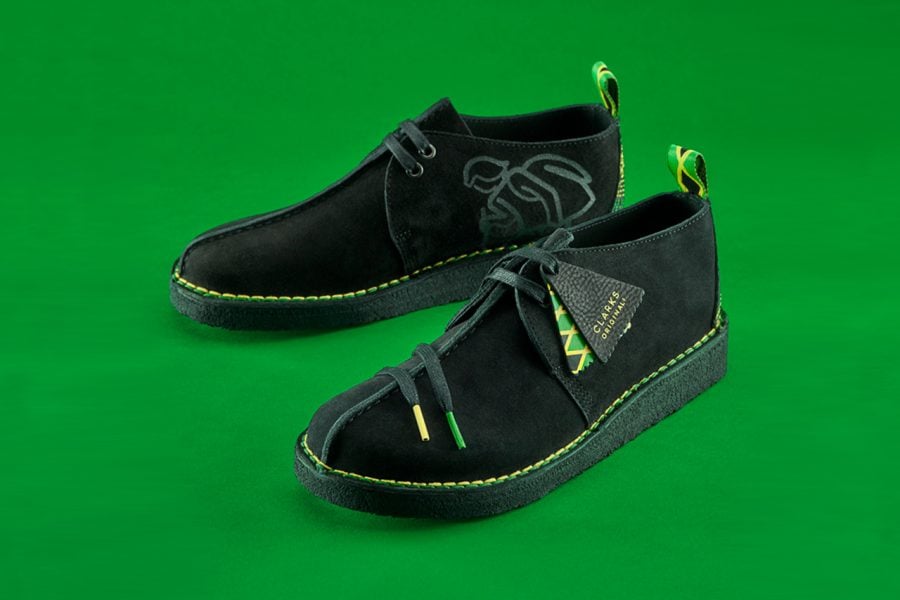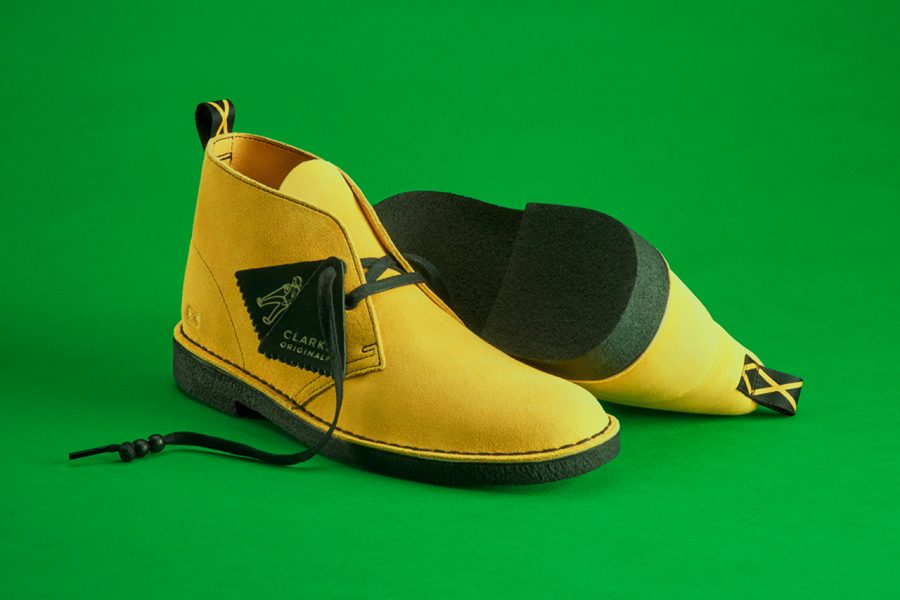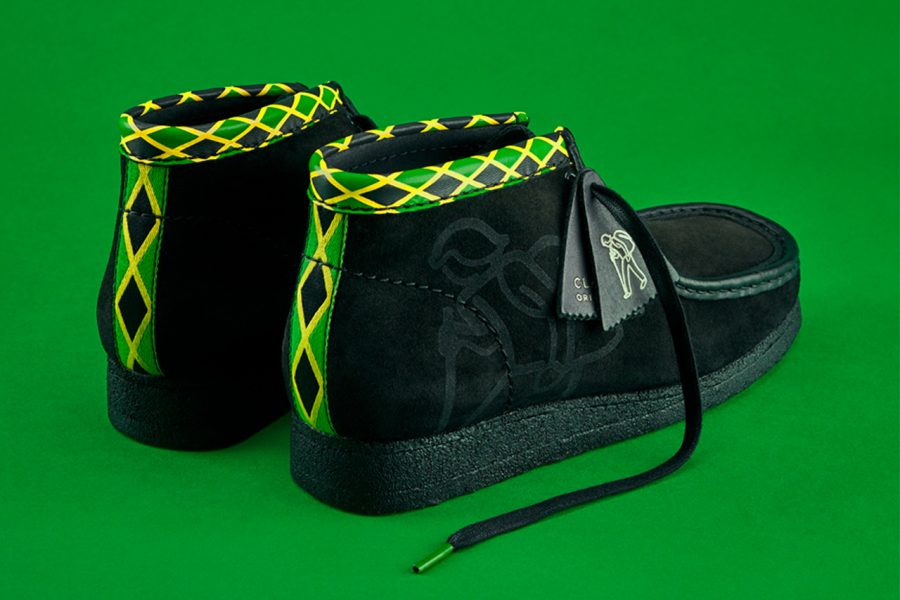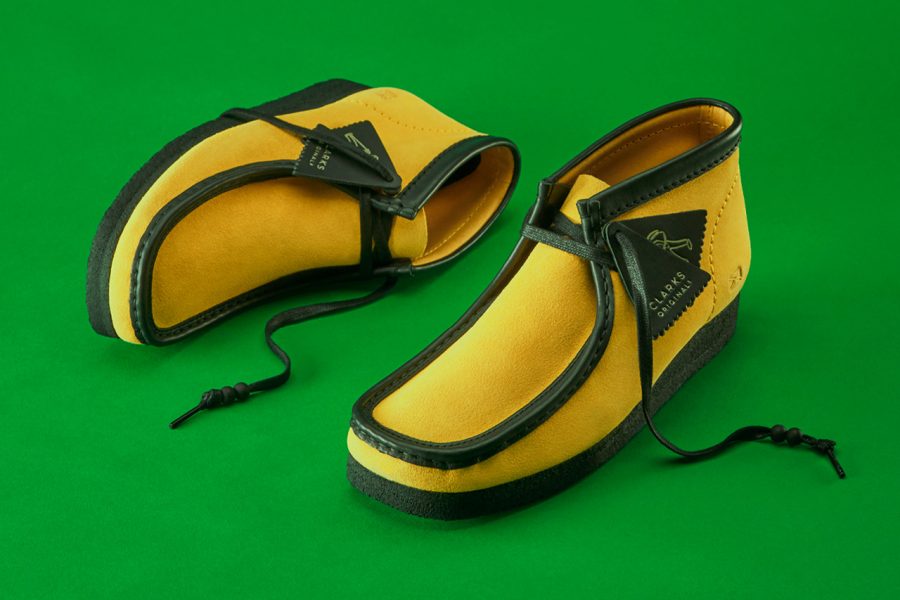Clarks Originals Says Endorsement Deals Are Coming For Dancehall Artists
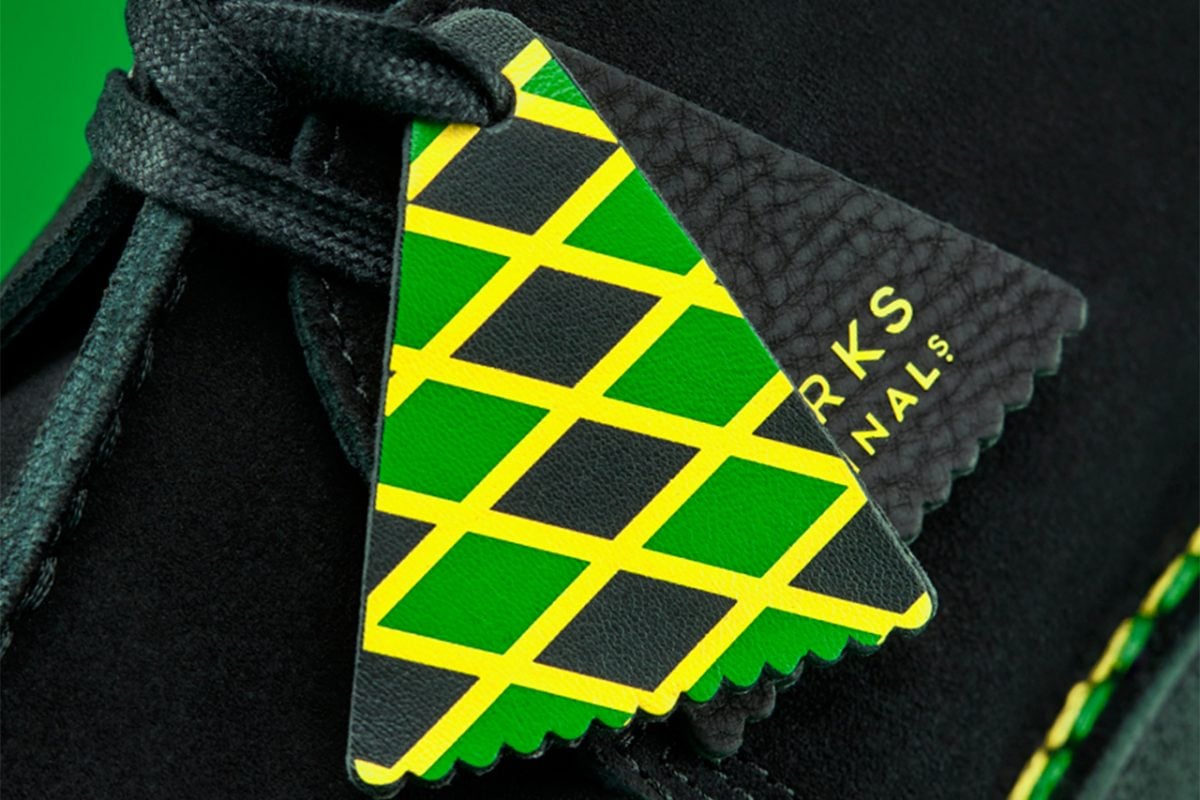
British footwear brand Clarks Originals says it will be engaging in endorsement deals with Reggae and Dancehall artists to promote its new ‘Jamaica Pack’ line, which is set to be officially be launched in April.
The revelation and assurance came from the company yesterday after it was taken to task by several Jamaican skeptics, who said they hope it was not seeking to exploit Brand Jamaica for selfish gain, by unveiling the line which carries the Jamaica Trek, Desert Jamaica and the Jamaica Bees and which is part of their Spring 2021 collection.
Instagram user, gordonmckenzie56, wrote: “Nice, now sign some Reggae and Dancehall artists to endorsements…Thank you.”
Clarks Originals responded: “@gordonmckenzie56 it’s coming”.
One follower, pablo_bbl’s demanded to know how Jamaican artists would finally benefit, after having given Clarks copious amounts of free advertising for decades, resulting in a massive increase in their global sales. “Wondering how much and how long you’ll be giving back to Jamaica?!?! Jamaican artists have given Years of free advertising….hope it’s not just a marketing ploy! Jamaican diaspora have stayed loyal to the brand all over the world! Hope there’s sincerity in your gesture!” he wrote to which the company responded: “@pablo_bbl “There is” (sincerity).
The move to finally engage Jamaican artists has been viewed by many Jamaicans as being long overdue, as Clarks has been an all-time favorite of the nation’s Reggae and Dancehall artists, who glorified and immortalized Clark’s ‘Bank Robber’, Wallabees, and Desert Clarks in their songs, dating to as far back as the 1970s.
Clarks has always been such an iconic footwear for Rastafarians as well as Dancehall and Reggae artists, who paid homage to the brand in their lyrics. The song which paid the greatest direct homage to Clarks was Little Johns Clarks Booty.
Other all-time classics which hailed the brand were Super Cats’ Trash and Ready and Eek-a-Mouse’s Wa Do dem?’
It is likely that Lila Iké will be among those taken on as brand ambassadors, for the Jamaican line, as in January 2020, the footwear company invited her to Paris Fashion Week, several weeks after the company singled her out for highlight, after she donned a lavender-coloured Wallabees for a performance in France, during her Europe Sound System tour.
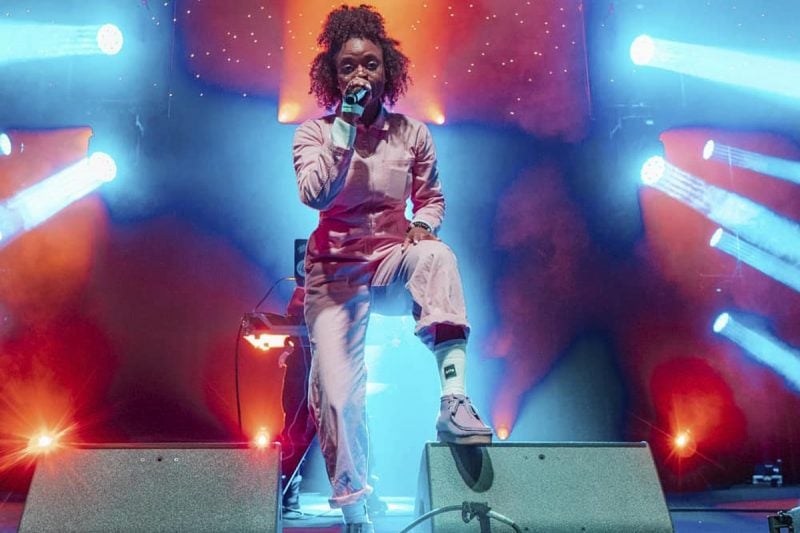
The company had shared four photos of Lila in the footwear and captioned the post: “Lila in Lavender performing live in Paris #WallabeeWednesday”. Some Reggae fans who responded had demanded that Clarks to do more than just post photos of Jamaican artists wearing their gear, by engaging them in promotional contracts, due to the fact that prior to Lila, Clark’s had re-posted Jahvillani’s song Clarks Pon Foot, dubbing it a ‘summer anthem for Clarks and Jamaica’ in July 2019.
Clarks has also been working closely with Koffee through her non-profit organisation Families Rule/MLT, a charity focusing on youth empowerment through training, mentorships and scholarships, so it is likely that there will also be a deal with her.
The Reggae and Dancehall enthrallment/fetishism with Clarks shoes was so profound that it inspired One Love Books’ founder Al Fingers, to assemble a compilation of tracks dubbed Clarks in Jamaica, in celebration of Jamaica’s love affair with the boots, which documented the enduring relationship between Jamaica and the British brand. That compilation featured 21 tracks:
Al Fingers also published a book of the same title in 2012, featuring comments from Bunny ‘Striker’ Lee, veteran deejay Trinity and other musicians as well as scores of photographs of Reggae and Danceall veterans posing in a slew of Clarks footwear, from Wallabees to discontinued variations like the Lugger and the Desert Mali.
Fingers had attributed his fascination with the shoes’ popularity to his early days growing up in England where he noticed and got deeply interested in “the Jamaican love of Clarks shoes and the way the brand is referenced within Reggae and Dancehall music”.
He had also said he decided to publish the book and assemble the musical compilation, as even though Vybz Kartel’s Clarks single brought the phenomenon to many people’s attention in 2010, the relationship went far back, and he wanted to bring attention to that.
The popularity of Clarks in Jamaica has even attracted the attention of fashion magazines such as Vogue, which published an article in 2015 titled How Jamaica fell for the Desert Boot: The Story of Reggae’s Love Affair with Clarks ”.
Vogue noted in the article that when Clarks introduced the Wallabee in 1967 and the Desert Trek “which was instantly re-christened ‘Bankrobbers’ in Jamaica in 1971, they practically flew off the shelves, straight onto the album covers of Reggae’s most influential singers and DJs, Rastas a and razor-trimmed lyrical gangsters alike”.
The Anglo-Egyptian-designed British Desert Clarks, which has been accepted in Jamaica as everyday wear including formal wear, was designed by a British soldier, Nathan Clark, great-grandson of company founder James Clark. Nathan had gone to war with two intentions: to fight, and to discover some new shoe designs for his family’s company. As a member of Britain’s Eighth Army he had been stationed in Lahore en route to fight the Japanese in Burma circa 1941, during the North African campaign of World War II.
In Burma, he noticed that the officers in his battalion were wearing sand-coloured, breathable, but rugged safari boots, which he later found out had originally been commissioned to Cairo cobblers by South African soldiers whose old-military issue boots had failed them out on the desert terrain. The soldiers had wanted boots which were both lightweight and ‘grippy’, which led to the creation of a boot with a suede upper on a crepe sole.
According to Vogue, the design was itself a particularly elegant take on a unique Dutch–South African hybrid called the vellie short for veldskoen which literally means “field shoe”, which were common in the region since, at least the 1700s.
“In spite of that durable pedigree, however, Clark was told the design would “never sell,” and the initial response in the U.K. seemed to confirm that diagnosis. Desert Boots did not take off, in fact, until they found a stateside market via Chicago’s Shoe Fair in 1949”.
By that time, the article said “the Desert Boot’s particular cocktail of dapper British gentility and commando roughness—not to mention its practicality in an urban, tropical milieu—had made Clarks irresistible to the rudeboys of Kingston’s burgeoning concrete jungle”, probably the fact that the West Indies was such a key secondary market for Clarks.
According to Vogue, the Clarks shoe and a certain gunslinger lifestyle became so synonymous, in fact, that by the late ’60s the infamous Jamaican police enforcer, superintendent Joe Williams, was known to raid the outdoor dances regularly held by Sir Coxsone Dodd’s legendary reggae sound system in his jurisdiction on Kingston’s Spanish Town Road.
The superintendent would divide the crowd into Clarks and non-Clarks groups to separate the rudeboys from “all nice and decent people”, resulting in Clarks wearers hastily yanking off their boots and walking around barefooted in the sessions.
“It took dancehall reggae’s reigning king Vybz Kartel to transform that die-hard cult following into a viral feeding frenzy (a craze that has helped push the shoemaker’s bottom line over the £100 million mark) when his young protégé Popcaan asked him with breathless admiration, ‘Whe’ you get yuh new Clarks deh, Daddy?’ on a record in 2010,” Vogue wrote.

